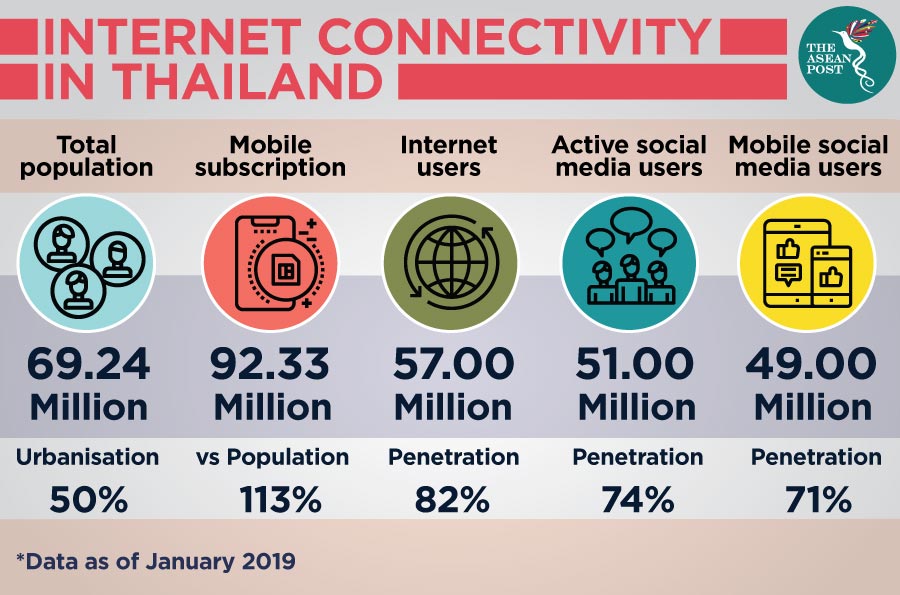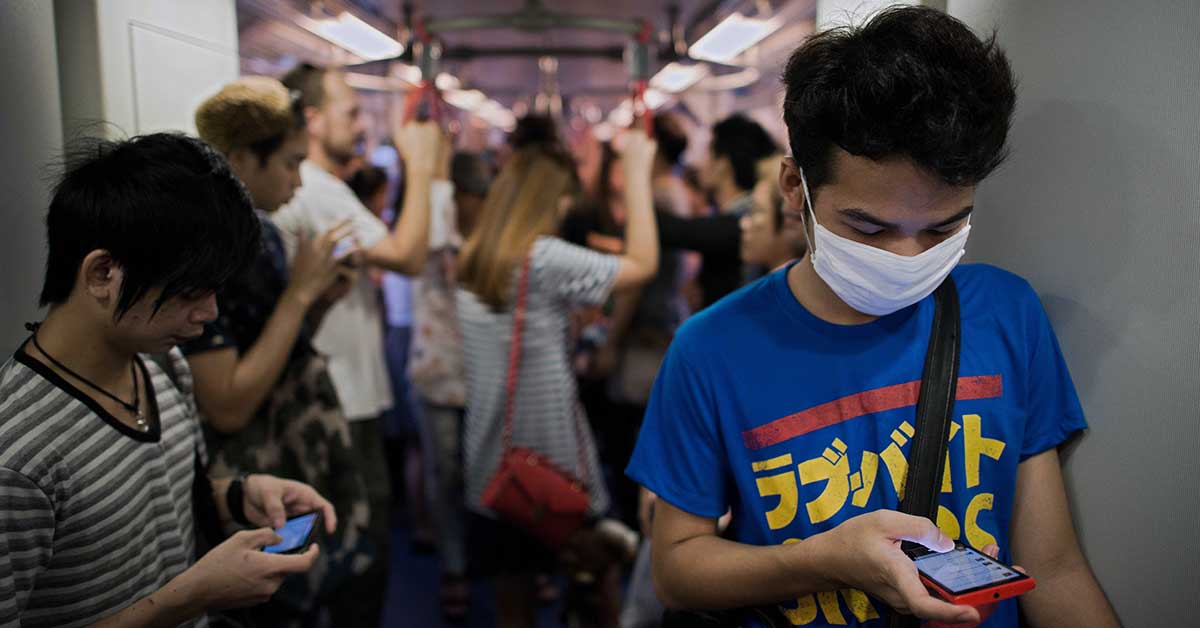Thailand’s embrace of the Fourth Industrial Revolution is perhaps among the most impressive in the region. From e-commerce to law enforcement, Thailand has shown that it is doing all it needs to ensure it lives up to its Thailand 4.0 plan.
It’s often been pitted that while the Fourth Industrial Revolution brings a lot of opportunities with it, there are also some challenges. As with any industrial revolution in the past, this is a simple fact of progress.
The ASEAN Post has published numerous articles on both – the advantages as well as disadvantages – of welcoming the Fourth Industrial Revolution. However, one disadvantage that has recently been highlighted by news reports in Thailand is worth diving into: the way technology might be affecting the physical health of the country’s youth.
"We've found that the ages of our patients are getting lower, since [students] are spending more hours on smartphones and computers," Chutiphon Thammachari, a physiotherapist at Mahidol University's Faculty of Physical Therapy, was quoted by local Thai media as saying.
Chutiphon went on to say that while, in the past, the majority of patients seeking physical therapy were office workers in their 40s, there has been a growing trend over the past two years of young patients – aged between 20 and 22 – seeking treatments for muscle and tendon inflammation at the university’s Physical Therapy Centre.
If prolonged use of devices is what is driving these youngsters to seek physical therapy then it’s little wonder that news of such matters would surface in the Land of Smiles.
In November last year, Parcel Perform noted that emerging markets like Myanmar and Thailand are seeing rapid growth in mobile marketing.
“Myanmar’s internet users also tend to forego the use of a desktop computer altogether, making them a mobile-only country. In Thailand, this mobile-first mentality is also occurring. Market research company, eMarketer, reports that more that 90 percent of people use their smartphones to go online. The average Thai also has 1.4 mobile phones, making Thais the most active mobile users in Southeast Asia,” the platform added.
A report by Google and Temasek also found that on average, consumers in Southeast Asia spend 3.6 hours per day on mobile internet. Thailand leads with 4.2 hours per day.

In November, ShopBack – utilising a proprietary database containing traffic and transactional data in five key economies in Southeast Asia (Singapore, Malaysia, the Philippines, Indonesia, and Thailand) – found that between July 2017 and June 2018, Thailand came out tops for mobile transactions growth.
“My thumb hurts”
While troubles arising from smartphone usage may seem small to those who are not completely aware of them, there are several issues arising from their overuse that the youth should not be facing at such an early age.
Firstly, according to Chutiphon, trigger finger (scientifically known as stenosing tenosynovitis) is a disorder of the tendons characterised by stiffness and a sensation of locking when a finger is straightened. Meanwhile, the associated "texting thumb", also known as De Quervain's syndrome, is caused by inflammation of tendons controlling the thumb.
Aside from these, frequent and prolonged use of smartphones also puts phone users at risk of painful "tennis elbow" which occurs when tendons are overloaded by the need to hold the joint in a bent position. The same problem can afflict tendons in the shoulder and neck. There is also concern when phone users bend their necks for prolonged periods while using a phone.
Despite these challenges, Chutiphon believes that there are simple measures (or good habits) which could minimise the risk of such health issues. She says that to avoid these painful conditions, users should change the way they operate their devices.
"If you want to have a long conversation, it's better to make a phone call rather than type," she advised, adding that users should also make use of voice-activated search and messaging features, which ease the burden on fingers.
As the world progresses – Southeast Asia included – it will become harder and more difficult to avoid technology. Nevertheless, one should not forget to take a breather and relax every once in a while. This is true for both, the young and the old.
Related articles:
